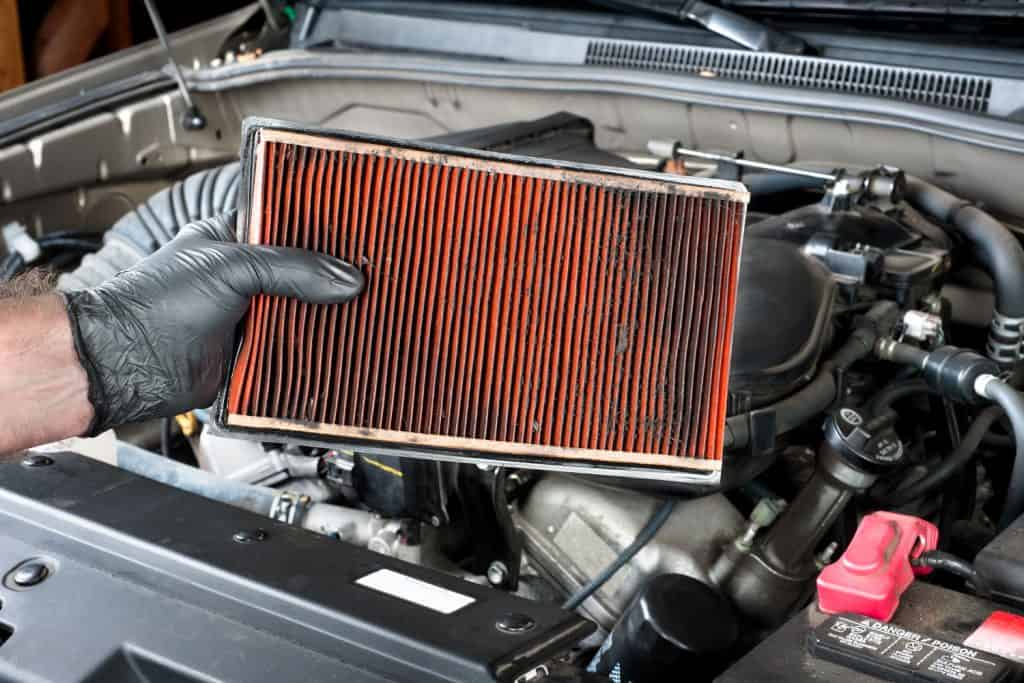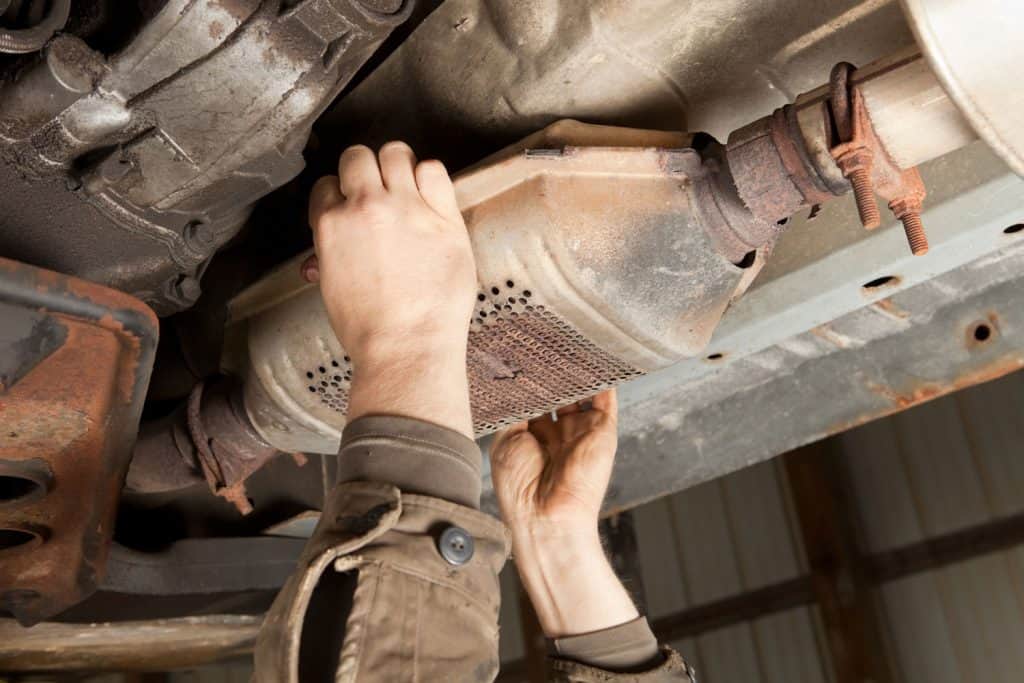It's never a good feeling when you hear your car making a weird noise. The first thing that comes to mind is expensive repairs and weighing your options between being without a ride or paying outrageous amounts for a car rental. No doubt, you're worried, and wondering why your car is chugging. We've researched some reasons and outlined them below.
Some reasons for chugging can be simple fixes, while others are more severe. Some of the most common reasons that your car may be chugging are as follows:
- Dirty air filter
- Faulty catalytic converter
- Faulty spark plugs
- Fuel tank breather valve
- Faulty fuel injector
We've covered the things that may cause your car to chug. Keep reading as we expand on these reasons and also cover other questions about problems you may be experiencing with your car, such as erratic idling and dragging during acceleration.

Why is My Car Chugging?
If your car is chugging, don't wait until the last minute to get it checked out by a mechanic or trusted friend who knows what they are doing. Your car could be chugging for simple reasons such as needing clean filters or new spark plugs, or it can be a more serious problem like the catalytic converter.
Dirty Air Filter

It's easy to forget about vehicle maintenance until something goes awry or your check engine light flashes. However, it's smart to schedule regular maintenance instead of waiting until problems arise. Air filters are one of the small issues that many drivers neglect.
Your air filter plays an important role in keeping your engine running properly. Dirty air filters can clog the system, causing the radiator and cooling system to work double time. In addition to chugging, it can also cause the engine to overheat.
Faulty Catalytic Converter

Catalytic converter, to the layperson, sounds intimidating. However, it's a fairly simple concept. The catalytic converter turns toxic pollutants into harmless gases. You have likely heard of carbon monoxide, which is a deadly gas. When gasoline combusts, it turns into carbon monoxide. Your vehicle's catalytic converter turns it into something that's not harmful.
Any unburned gas turns into hydrocarbons, and heat from the engine creates nitrogen oxide, both of which the catalytic converter keeps from being harmful to people. Therefore, you can see how important it is to keep this converter working properly.
Faulty Spark Plugs
Faulty spark plugs are an easy fix. They are usually cheap to replace, so it's best to buy new spark plugs rather than trying to clean the dirty ones. To get spark plugs properly calibrated and installed, see your mechanic. If they are in bad condition, it will cause the engine to chug and lose power.
Fuel Tank Breather Valve
You may not think your gas tank needs air circulation; however, when gas leaves the tank, it's replaced by air. The breather valve is an important component of this process, keeping the fuel tank from collapsing or imploding. Therefore, if your engine is chugging, make sure to check the fuel tank breather valve to avoid more serious problems.
Faulty Fuel Injector
Clogged or leaky fuel injectors can cause your car to chug and lose power. With regular maintenance, your technician can ensure that your fuel injector stays clean. If a problem occurs, you may need to have the injector cleaned or replaced.
What is Engine Chugging?
Engine chugging is the sputtering motion/sound that your car makes before losing power. It may feel like it's jerking. When this occurs, one or more of the above-mentioned problems may have taken place. Take it to a mechanic to determine the issue.
What Does it Mean if Your Car is Chugging?
If your car is chugging, something is not working properly. Your fuel injector or fuel tank breather valve may be clogged or in need of replacement. Larger problems, such as faults in your catalytic converter, can be harmful to your health. Dirty air filters and old spark plugs are some common culprits, which are easy and cheap fixes.
What Causes a Car to Chug While Driving?
If the vehicle is chugging while it idles, your engine valves may be blocked with dirt and sludge. Over time, dirt and grime build up, making the motor work harder to run the vehicle. When this happens, you can experience chugging while driving your car or idling. If the problem only happens when the car idles, you may have a faulty vacuum or crankshaft filter.
What Can Cause an Engine to Idle Erratically?
As mentioned above, if the problem only occurs while the car is idling, there may be a leak in the engine vacuum, or you may need to change the crankshaft sensor. A clogged filter or fuel injector may also be the culprit.
One thing you may not have considered is improper idle speed. Vehicles should idle between 600 RPMs and 1000 RPMs. If the car is not idling at the correct speed, the motor will begin to sputter. This is an easy fix, and it's not an uncommon occurrence in vehicles with high mileage. If your vehicle is idling at the wrong speed, see your mechanic for a tune up.
Why is My Car Dragging When I Accelerate?
Have you ever heard of someone's gas tank getting water in it? While it may sound odd, if someone leaves their tank open or fills up at a gas station with a leaky pump, you may end up with water in your tank. This may not seem like such a big deal; how much damage can water do anyway?
This is far from the truth. Water in your gas tank, if left there for too long, can cause severe damage to your car. It can damage the fuel injector, cause problems with cylinders, and rust the fuel system. If you have water in your gas tank, you will need to remove it as soon as possible.
Removal is fairly simple. Companies produce drying agents for this very reason. You take the drying agent, such as HEET, and add it to the fuel tank. The water will be gone in no time without the costly expenses of taking your car to the shop.
Click here to view it on Amazon.
In closing
If your car is chugging, it can be worrisome. Don't panic just yet. Review the list above to determine if any of the issues may apply to your vehicle. Once you think you understand the culprit, take your car to a reputable mechanic for servicing. Don't forget to schedule regular maintenance from here on out to prevent future problems.
If you need more information about vehicle maintenance, check out our other blog posts. We can help you determine how much it will cost to change your air filter, possibly fixing the chugging problem. What if you accidentally put diesel in your gas tank? Don't worry; we have an article for that as well.
Keep coming back for more tips and tricks to keep your car running smoothly, including how to change your engine oil, what to use in your windshield washer reservoir, and much more!

